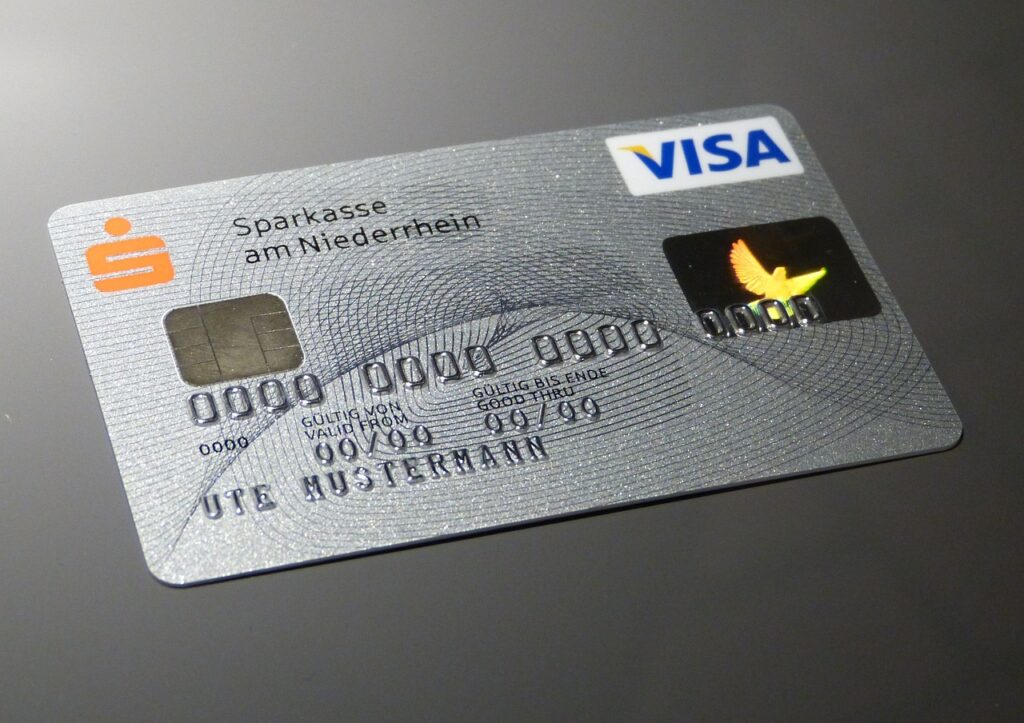A credit card can be a valuable tool for building your credit history and earning rewards. However, it’s important to choose the right card for your needs. A decent credit card is more than just a convenience in today’s money-driven world; it’s a priceless asset. No matter if you have experience using credit or are brand-new to it, knowing how to select the best credit card can have a big impact on your financial situation. There are many options accessible, so it’s important to sort through them all to discover the one that best meets your needs.
Once you’ve been approved for a credit card, it’s important to use it responsibly. This means paying your bill on time in full each month. It also means keeping your credit utilization low. Credit utilization is the amount of your credit that you’re using. A good rule of thumb is to keep your credit utilization below 30%.
Understand your credit score
Your credit score is a three-digit number that lenders use to assess your creditworthiness. The higher your credit score, the more likely you are to be approved for a loan or credit card with good terms.
There are many different factors that can affect your credit score, including:
- Payment history: Your payment history is the most important factor in determining your credit score. Lenders want to see that you have a history of making your payments on time.
- Amount of debt: The amount of debt you have can also affect your credit score. Lenders want to see that you are not carrying too much debt.
- Length of credit history: The length of your credit history is another important factor in determining your credit score. Lenders want to see that you have a long history of responsible credit use.
- New credit inquiries: Too many new credit inquiries can also hurt your credit score. Lenders want to see that you are not applying for too much credit in a short period of time.
Choose the right credit card for your needs
There are many different types of credit cards available, each with its own set of benefits and drawbacks. It’s important to choose the right card for your needs. Here are a few things to consider when choosing a credit card:
- Your credit score: Your credit score will affect the interest rates and fees you’re offered on a credit card. If you have good credit, you may be able to get a card with a low interest rate or no annual fee.
- Your spending habits: Consider how you plan to use your credit card. If you travel frequently, you may want to choose a card that offers travel rewards. If you shop online, you may want to choose a card that offers cash back rewards.
- Your budget: Credit cards can be a great way to build your credit history and earn rewards, but it’s important to use them responsibly. Make sure you can afford to make your payments on time each month.
Once you’ve considered these factors, you can start to compare different credit cards. There are many resources available to help you compare credit cards, such as https://paisaearn.com/credit-card/ .
Here are a few things to look for when comparing credit cards:
- Interest rate: The interest rate is the amount of interest you’ll pay on your balance if you don’t pay it off in full each month. A lower interest rate will save you money in the long run.
- Annual fee: Some credit cards charge an annual fee. If you don’t plan to use your credit card often, it may be worth choosing a card without an annual fee.
- Rewards: Many credit cards offer rewards, such as cash back, travel rewards, or points that can be redeemed for merchandise. Choose a card that offers rewards that you’ll actually use.
Once you’ve found a few credit cards that you’re interested in, you can apply for them online. Be sure to provide all of the required information, such as your name, address, income, and Social Security number.
Apply for a credit card
Applying for a credit card is a fairly simple process. You can apply online. When you apply, you will need to provide some basic information, such as your name, address, income, and Social Security number. You may also be asked to provide information about your employment and your credit history.
IDFC First Bank Credit Card
For Lifetime Free — Apply Here
Once you have submitted your application, the credit card issuer will review your information and decide whether to approve you for a card. If you are approved, you will be sent a credit card in the mail.
Here are some tips for applying for a credit card:
- Choose the right credit card for your needs. As mentioned earlier, there are many different types of credit cards available, each with its own set of benefits and drawbacks. It’s important to choose the right card for your needs.
- Be prepared to provide information about your income, employment, and credit history. The credit card issuer will use this information to assess your creditworthiness.
- Be honest on your application. Lying on your application can result in your application being denied or your account being closed later on.
- Don’t apply for too many credit cards at once. Too many new credit inquiries can hurt your credit score.
Use your credit card responsibly
Once you have been approved for a credit card, it’s important to use it responsibly. This means paying your bill on time in full each month. It also means keeping your credit utilization low. Credit utilization is the amount of your credit that you’re using. A good rule of thumb is to keep your credit utilization below 30%.
Here are some tips for using your credit card responsibly:
- Pay your bill on time in full each month. This is the most important thing you can do to build a good credit history. If you don’t pay your bill on time, you will be charged interest and your credit score will be hurt.
- Keep your credit utilization low. Credit utilization is the amount of your credit that you’re using. A good rule of thumb is to keep your credit utilization below 30%. For example, if your credit limit is $1,000, you should try to keep your balance below $300.
- Only charge what you can afford to pay off. Credit cards should be used for convenience, not for debt. If you can’t afford to pay off your balance in full each month, you should only charge what you can afford to pay off in the next billing cycle.
- Set up automatic payments. This is a great way to make sure you never miss a payment.
- Review your statement each month. Make sure all of the charges on your statement are correct. If you see any errors, report them to your credit card issuer immediately.
- Take advantage of rewards. Many credit cards offer rewards, such as cash back, travel rewards, or points that can be redeemed for merchandise. If you use your credit card responsibly, you can earn rewards that can save you money or help you travel.
Monitor your credit report
Your credit report is a record of your credit history. It includes information about your loans, credit cards, and other forms of credit. Lenders use your credit report to assess your creditworthiness when you apply for a loan or credit card.

It’s important to monitor your credit report regularly for any errors. Errors can damage your credit score and make it difficult to get approved for a loan or credit card. You can get your free credit report from a credit bureau for a fee.
When you review your credit report, look for the following:
- Accuracy: Make sure all of the information in your credit report is accurate. If you see any errors, dispute them with the credit bureau immediately.
- Inquiries: Too many new inquiries can hurt your credit score. Only apply for credit when you really need it.
- Derogatory marks: Derogatory marks, such as late payments or bankruptcies, can stay on your credit report for up to 10 years. If you have any derogatory marks, try to dispute them or get them removed.




